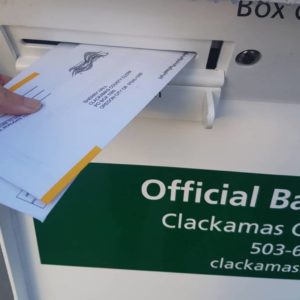Judge orders Oregon clean energy ballot measures to proceed
Yesterday, a Judge in Marion County, has ruled that two proposed Oregon Climate Initiatives can proceed.
The measures were previously rejected by the Oregon Secretary of State, Bev Clarno. Like the forestry ballot initiatives that she rejected, she concluded that these earlier said the ballot initiatives violated a state requirement that legislative measures stick to one subject. And again, like the forestry ballot measures, a Judge has found she was incorrect.
As the AP Reports:
The judge’s permanent injunction means the process of earning a final ballot title from the attorney general will resume. Notably, Attorney General Ellen Rosenblum, a Democrat, refused to defend Clarno in the litigation and had challenged her legal basis for tossing the two proposals and a third one.
This ruling relates to Initiative Petitions #48 and 49. Proponents had said they proposed the initiatives to help spur the Legislature to take action during the short session in early 2020. It will be interesting to see what happens. Stay tuned!
Full Text
Ballotpedia has the full text of all Oregon’s ballot initiatives for the upcoming election, including those already on the ballot, those proposed, and those rejected. There is also a short summary on the process.

Voting by Mail in Oregon

